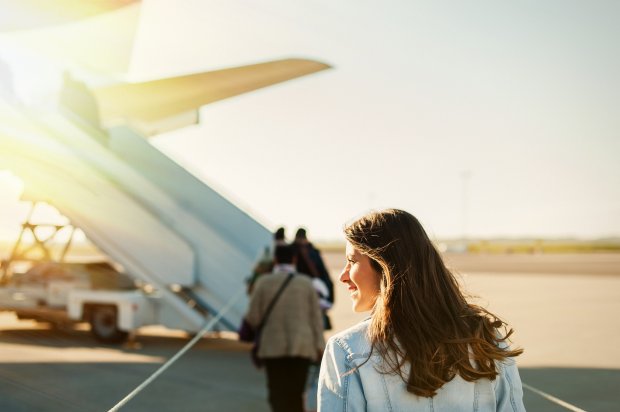The aviation industry with an ambitious goal: Norwegian aviation must be fossil-free by 2050

Norwegian aviation must be a world leader in climate solutions. This is the goal in a recent report from an overall Norwegian aviation industry.
For the first time, SAS, Widerøe, Norwegian, Avinor, LO and NHO Aviation have joined forces to set a common emissions target and a roadmap to achieve the target: Norwegian aviation must be fossil-free by 2050. This means that scheduled flights to and from Norway in 2050 will not use fossil fuels.
- With this, we signal a clear ambition, and we all commit to a number of changes in the coming decades. To achieve this, we are also dependent on continued close cooperation with the authorities, says Dag Falk-Petersen, CEO of Avinor.
He points out that the whole of society - including aviation - must reduce greenhouse gas emissions if irreversible climate change is to be prevented. Norway without aviation is almost unthinkable, and aviation will be part of the solution to achieve the goals set in the Paris Agreement.
- Despite the fact that we are hard hit by the corona pandemic, this has not changed our ambition to reduce greenhouse gas emissions, says Falk-Petersen
Aviation will be the driving force - invites the authorities to partnership
Norwegian aviation will go to great lengths to achieve the goals set. The industry invests in new energy-efficient aircraft and is a driving force in developing and implementing zero- and low-emission solutions. At the same time, sustainable fuels are being phased in and airspace is being made more efficient.
- In order to achieve the industry's ambitious goals, there is not just one solution, but several measures are needed with effective tools from the authorities. At SAS, we take our share of responsibility and collaborate with Airbus, among other things, to develop low- and zero-emission aircraft, and will fill biofuel equivalent to all domestic flights in Scandinavia by 2030, says Kjetil Håbjørg, Executive Vice President of SAS.
- Politicians must ensure predictable framework conditions and then it is up to market participants to decide which climate-friendly technologies are to be developed, produced and used. The restructuring must be made cost-effective and profitable, says Jacob Schram, CEO of Norwegian.
It is emphasized that a significant investment is needed in research, development and functioning markets to ensure sustainable fuels, electrified aircraft and the development of hydrogen technology.
- Technology development takes time, but Norway now has the opportunity to take a leading role internationally. We propose that a regular meeting place be established between the authorities and the aviation industry, says Torbjørn Lothe, CEO of NHO Luftfart.
Will be first out with commercial electrified aircraft
The industry is concerned that the public sector facilitates the introduction of electrified aircraft in commercial aviation.
- We have clear ambitions to replace our short-haul fleet with zero-emission aircraft. The Norwegian short-haul network is tailor-made for this, says Stein Nilsen, CEO of Widerøe.
A transition to fossil-free aviation can create jobs throughout Norway.
- We are happy to be involved in planning a climate-friendly aviation. We influence politics, and we have the industrial knowledge needed. There are great opportunities here, not least for the establishment of Norwegian jobs, says Peggy Hessen Følsvik, leader of LO Aviation.
Praises the industry and cuts the air passenger tax for zero- and low-emission aircraft
Minister of Transport and Communications Knut Arild Hareide started by praising Avinor, SAS, Widerøe, Norwegian, LO and NHO Luftfart for the work that has been done
- Not least that you have done it in a time that is incredibly demanding for aviation, you still show how important environmental and climate work is by prioritizing this work, he says.
Hareide could also come up with a news for the industry: The government will cut the air passenger tax for flights with zero and low-emission aircraft and this is in next year's state budget.
- We want to do something of the same as we have succeeded in the electric car policy, and use some of the same tools for aviation. This will not have such a big effect in 2021, but the signal is very clear from the authorities: We are removing the fees to ensure zero and low-emission aircraft and clearly state which direction we want this to go in, Hareide said.


